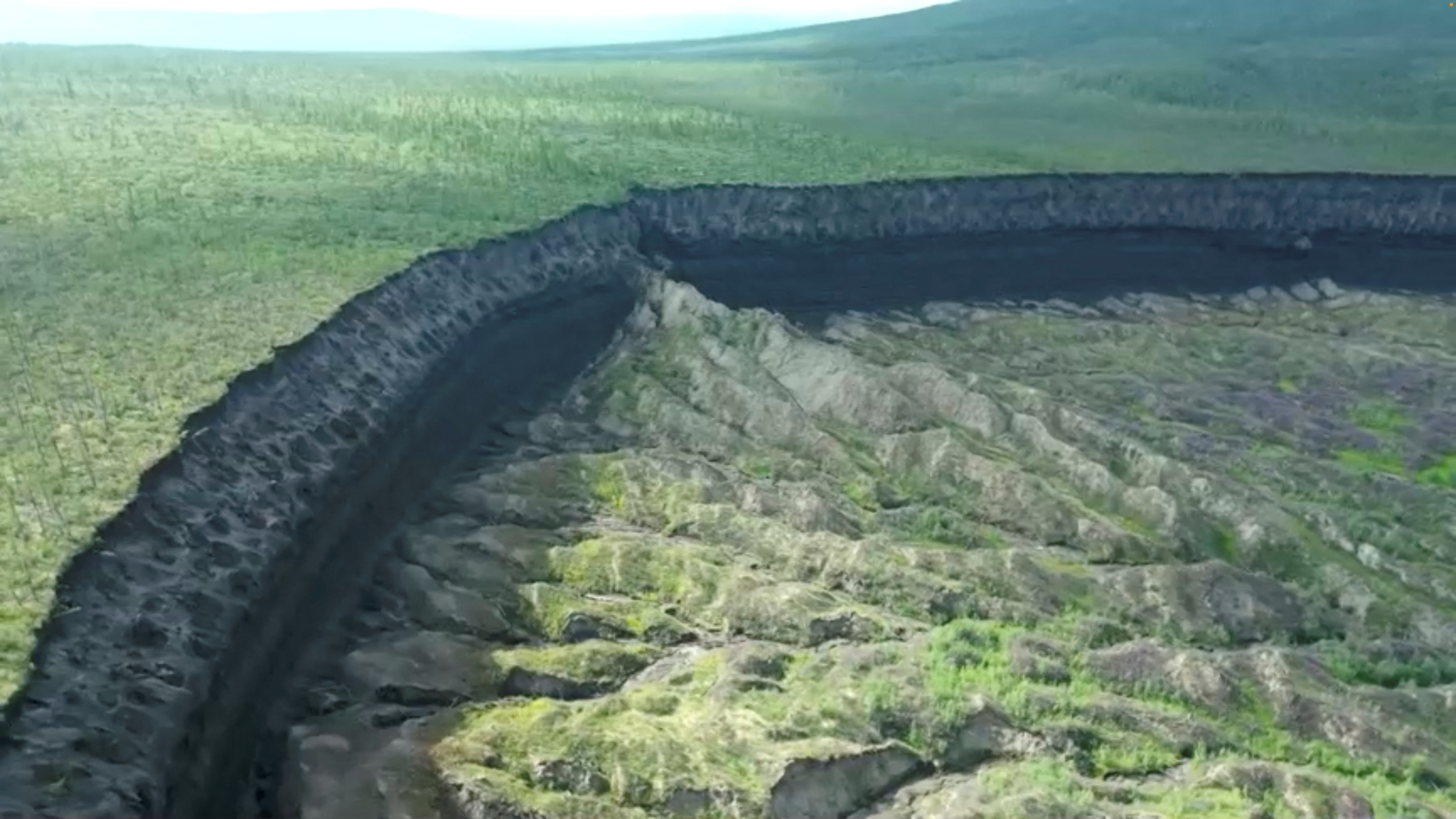Climate change causing Siberia’s Batagay crater expansion amid environmental concerns
May 15, 2024
391

A vast crater in Siberia, known as the Batagay crater or megaslump, has garnered attention for its remarkable growth and impact on the surrounding landscape. As climate change continues to affect the region, the crater, resembling a “gateway to the underworld,” expands, revealing layers of permafrost dating back hundreds of thousands of years, reports The Week.
- The Batagay crater, also referred to as a megaslump, was first identified in 1991 after a hillside collapse in northern Sakha, Russia, revealing the vast depression in the Earth’s surface.
- Megaslumps are a result of melting permafrost, a characteristic feature of the Arctic landscape, which loosens and collapses the Earth’s surface as the frozen soil and rock thaw due to rising temperatures.
- The crater, measuring up to 100 meters deep and around one kilometer long in 2017, continues to expand, with its cliff face retreating at a rate of 12 meters per year due to permafrost thaw.
- Locals have mixed feelings about the crater, with some fearing it due to mysterious sounds it emits, while others explore the site, which locals call “the cave-in.”
- The expansion of the megaslump poses significant danger, releasing large quantities of organic carbon into the atmosphere as permafrost thaws, exacerbating global warming.
- However, scientists see an opportunity to study the exposed layers of soil dating back hundreds of thousands of years, hoping to gain fresh insights into climate change from the crater’s formation.